Choosing the right type of generator during industrial power solutions is a critical step to ensure efficiency, reliability, and cost-effectiveness. A diesel and gas generator has been the two major options, offering their own advantages and challenges about applications. But how will you know which is the best fit for an operation? This paper goes into a thorough comparison of diesel and gas generators, highlighting key differences, pros, and cons. Whether you handle a large construction site, a manufacturing facility, or just need it for backup power in an emergency, understanding these generator types will help you make the best decision for your case. Continue reading to know which type of generator is best suited to fulfill your particular needs and strategic goals.
Understanding Different Types of Generators
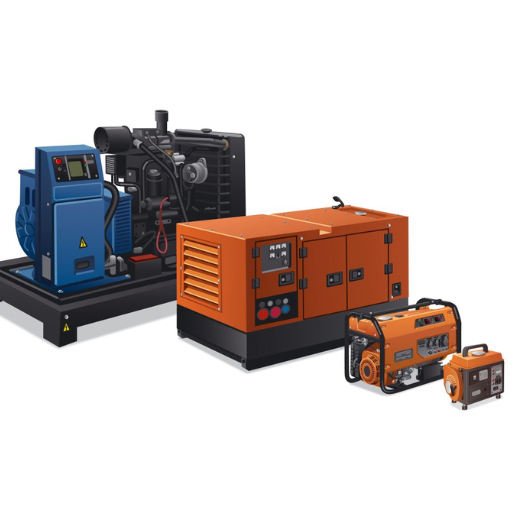
Diesel and gas generators remain two of the most popular types available in the market, each suitable for different power needs and scenarios. Diesel generators are typically more rugged and fuel-efficient, which, therefore, rank amongst those best suited for heavy-duty use and long-term applications. Maintenance-wise, diesel generators may require less of it and usually last longer under load conditions. Gas generators, meanwhile, are more affordable to purchase and operate very quietly, being ideal for residential uses or light commercial activities. On the contrary, their maintenance becomes more frequent, and they are less fuel-lean if compared to diesel ones. In the end, the generator you buy depends on what your operational requirement is, what your budget is, and how you intend to use it.
What is an Industrial Generator?
An industrial generator is a heavy-duty machine that ensures reliable power for large-scale operations, such as those taking place in multiple factories, at construction sites, and inside data centers. I would call it a robust and durable solution that can stand the load of high power demands and can work consistently in adverse environments.
Overview of Diesel Generators
Diesel generators being utilized in many industries provide dependable sources of power due to their efficiency and durability. In these generators, a diesel engine is coupled with an electrical generator to produce electricity, which means it suits both the requirements of the main power source and the standby power. Efficiency-wise, a diesel engine typically consumes less fuel than a gas engine for the production of an equal amount of power.
Another major attraction to diesel generators is the long life span of these generators. If taken care of well, a diesel generator can have an average lifetime of over 20,000 hours before requiring a major overhaul. The newer generation models incorporate further enhancements in noise reduction, fuel consumption, and control systems, which enable remote operation and monitoring.
Diesel generators are prized to have power ratings as low as 5 kW, suitable for small businesses, to 3 MW used in power plants or large industries. According to recent industry data, experienced to emerging economies needing reliable power supply and frequent power outages in developed regions, the global diesel generator market is expected to undergo a compounded annual growth rate (CAGR) of about 6% in the coming years.
Such generators are life-saving resources for industries, including health services, telecommunications, and the manufacturing sector, that require continuous and uninterrupted power. Their rugged build and flexibility allow them to operate even under harsh conditions, providing a dependable solution where critical energy demands must be met.
Overview of Natural Gas Generators
If any question is asked about a natural gas generator, the answer should be that it produces electricity by burning natural gas for fuel. These generators are considered more efficient, economical, and less harmful to the environment than diesel or coal-based generators. These powerhouses find their ideal usage for homeowners and industries alike, where they serve as reliable units to restore power in case of outages or even upon constant consumer demand. These generators do a cleaner job because they emit fewer pollutants. These generators have risen to popularity for their perfect mix of price, efficiency, and environmental compatibility.
Industrial Generator Fuel Efficiency and Emissions
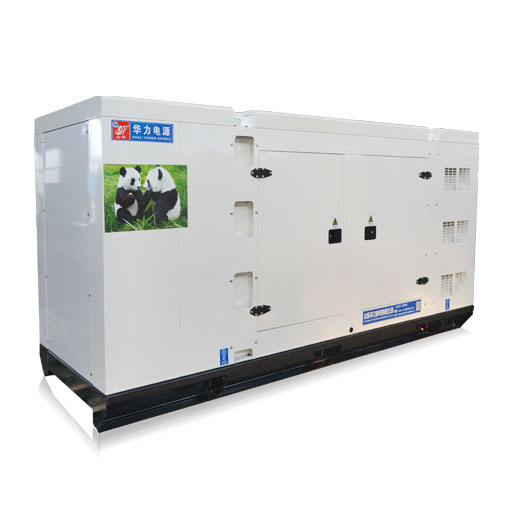
Fuel efficiency for industrial generators varies, with diesel generators considered the best in fuel efficiency when operating at heavy loads. In essence, diesel engines consume less fuel per kilowatt-hour and would, hence, be best-suited to high-demand applications. Unfortunately, they do have the highest emissions of NOx and particulate matter.
Natural gas generators, conventionally, have a much lower level of emissions for nitrous oxide (NOx), carbon monoxide (CO), and particulates, thereby representing the much cleaner choice. Although penalized slightly by fuel efficiency, natural gas does score higher in areas where its availability is also considered a cost factor. An evaluation of diesel versus natural gas options must consider environmental regulations and operational considerations.
Diesel Generator Fuel Efficiency
Diesel generators, being the most fuel-efficient, are generally preferred by industries commanding reliable and permanent power. Thus, on average, diesel generators utilize 40% to 50% of the fuel energy for electricity production, grossly comparatively higher than other fuel-type generators. Typically, a 100 kWh diesel generator would use around 7 to 8 liters of diesel per hour at full load, depending on the specifications of the model and other working conditions.
Diesel engine development has even enhanced its fuel economy, given that some innovations very much benefit from all technological advancements, namely the turbocharger, electronic fuel injection systems, and the optimized combustion processes. Thus, diesel generators have the best fuel efficiency when running between 70% and 80% of rated load, and performance begins to drop off as lower load or heavy load conditions are experienced.
A diesel engine is also less impaired by changes in fuel quality level than other engine types, helping it to maintain high performance in the long run. This reliability and efficiency make diesel generators ideal for critical applications such as backup power in hospitals, data centers, and industrial settings. However, to ensure continued excellent fuel efficiency and fewer emissions, proper maintenance and upkeep must be undertaken to keep age-related wear in check, such as in-time change of oil changes and regular replacement of filters.
Natural Gas Generator Fuel Efficiency
Being slightly more fuel efficient and environmentally oriented, natural gas generators are among the popular choices amongst generator purchasers. They use natural gas, a fossil fuel that burns cleaner, thereby lessening greenhouse gas emissions compared with diesel and petrol generators. On average, depending on the size and configuration of the generators, natural gas generators ensure a fuel conversion efficiency range of 30-50%.
Thus, in many regions, the low costs attributed to natural gas make these generators more profitable to run; also, natural gas is supplied through pipelines functioning consistently and does not require storage. In this way, a 200 kW natural gas generator, consuming about 24 cubic feet of gas per kWh produced, might offer a steady and cost-effective power solution to both residential and commercial applications. Naturally, advances in engine and turbine technologies go on to improve their thermal efficiency while maximally producing electricity with a minimal adverse effect on the environment. These make natural gas generators the most strongly advertised choice for long-term, sustainable generation.
Emission Comparisons: Diesel vs. Natural Gas
In emission matters, natural-gas generators do pose genuine environmental advantages over their diesel counterparts. Diesel generating units present much higher quantities of particulate matter (PM), nitrogen oxides (NOx), and sulfur oxides (SOx); all of these contribute to air pollution, acid rain, and health hazards. Diesel engines, for example, are said to be about 20 times more polluting in terms of particulate matter when compared to natural gas engines.
Conversely, natural-gas generators have substantially fewer emissions of greenhouse gases. Statistics suggest that emissions of carbon dioxide (CO2) due to natural gas burning are around 30% less than those from diesel. Conversely, natural gas engines produce almost 90% less NOx emissions compared to diesel engines, thus hugely mitigating smog formation and respiratory risks. Since natural gas contains negligible sulfur, it eliminates SOx emissions while diesel fuel produces it.
In cleaning the emissions profile, the combustion of natural gas lies very much at the core. It burns more completely and efficiently, emitting fewer unburned hydrocarbons in the air. Industries and regions trying to reduce their carbon footprint while still conforming to tough environmental regulations continue to give preference to the natural gas alternative. Clean emission profile from natural gas is indeed a giant leap toward greener energy solutions.
Choosing the Right Generator for Your Business
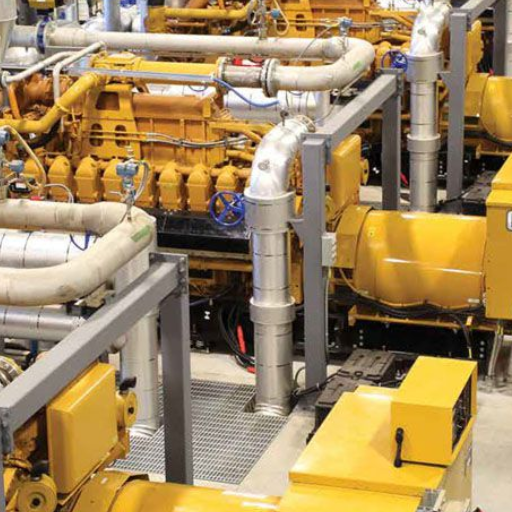
Starting from the very beginning, select the exact generator capable of powering your business in consideration of your specific power requirements. Think about which systems and kinds of equipment will need to be backed up for power and set out the total energy or demand in kilowatts. If you consider emissions a great thing or sustainability in the environment, you will choose a natural gas generator due to its relatively low emissions profile. Alternatively, a diesel generator might be more suitable for businesses that require a higher power output or in areas where no natural gas infrastructure is available. In other words, it should accommodate local conditions and be aligned with your budget and use.
Factors to Consider in Selection
Generators should be selected by first evaluating the technical information and then determining the situational need. Considerations with detailed explanations are as follows:
Power Output Requirements
Doing an exact calculation of how much power you will need is a must. For homes, a standby generator capable of producing 7-22 kilowatts would probably suffice, whereas bigger commercial establishments require generators capable of producing 50-200 kilowatts or more. Don’t forget the short-term load, as a generator is generally not meant to handle short bursts exceeding its rating.
Fuel Type and Availability
Usually, generators are run via diesel, natural gas, propane, or gasoline. They are known to function longer when used under load and:
Diesel generators will perform longer under loads versus propane and gases, being cleaner in environmental terms, but are favored when connected to existing natural gas lines, as this prevents refueling concerns;
However, propane being cleaner than diesel poses an extra storage cost.
Fuel Efficiency and Runtime
The fuel efficiency of a generator should be considered about what the generator will be used for. Modern diesel generator sets reach fuel efficiencies of around 30-40% depending on loads and operating conditions. For those engaged in business in remote places or suffering prolonged power outages, runtime is a factor. Models with bigger fuel tanks or those supporting continuous refueling systems are preferable for such usages.
Noise Levels
Noise considerations will be paramount in residential and urban uses. Today, most generators are fitted with sound-dampening features with noise levels contained between 65-75 decibels-anterior to that of a household vacuum cleaner. Look for noise certifications or select an enclosure design.
Environmental Impacts and Compliance
Generator emission rules widely vary from one region to another, especially within certain strict environmental jurisdictions. Select the ones conforming to EPA Tier 4 standards, which govern the emission of nitrogen oxides (NOx) and particulate matter. Natural gas and propane tend to meet these standards much more easily than old diesel models.
Cost of Ownership
Besides the purchase price, small things to add up include maintenance, fuel, installation fees, and rebates from utilities, should you be doing them a favor by using a cleaner fuel type. Diesel generators may be higher in cost initially than those using other types of fuel, but require less maintenance in the long run, so they are particularly suitable for any industry.
Technology and Connectivity
Many modern generators now feature smart functionality, including remote monitoring over the Internet via a smartphone app, automated diagnostics, or real-time generation performance data tracking. These technologies can help streamline maintenance and ensure reliability.
Sizing and Installation
Improper sizing of a generator can cause a much efficient use of power or damage to your equipment. With that, it is necessary to have a professional electrical load assessment on the installation site to figure out the right size of generator. Also needed is to consider space requirements and installation location to provide ventilation and accessibility for servicing.
Conversely, carefully weighing the above factors can ensure that your generator choice satisfies your immediate and long-term needs in terms of performance, cost, and environmental responsibility.
Applications of Diesel Generators
In the past, diesel generators were widely used in several industries and sectors due to their reliability, efficiency, and adaptability. Here are some major applications of diesel generators:
- Emergency Power Supply
Diesel generators provide backup power at the event of power failures. They operate to provide uninterrupted function during emergencies at hospitals, data centres, and other emergency response centers.
- Construction and Mining
Diesel generators are an important element in powering equipment and tools at such remote locations where the presence of a power grid is doubtful. Diesel generators generally provide power to heavy machinery, compressors, and lighting systems at construction sites.
- Industrial Use
Diesel generators may also be used by manufacturing firms in production plants to ensure the continuous operation of production lines during any planned or unplanned interruptions to the main power supply, thereby keeping machinery and assembly lines operational.
- Agriculture
Diesel generators provide a source of power in agricultural operations required to run irrigation systems, processing machinery, and refrigeration for perishables in non-grid zones.
- Telecommunications
In times of power failure, diesel generators act as the backup power source for cell towers and telecommunication stations, from where uninterrupted communication services may be maintained.
- Marine Applications
Diesel generators are largely used to supply power to onboard installation systems, navigation systems, and other systems on board.
The mentioned applications clearly show how it can be flexible and versatile, marking diesel generators as a must in reliable energy solutions both in city areas and remote terrains.
Applications of Natural Gas Generators
- Residential Power Supply
Natural gas generators find wide use in nomadic and rural areas where stationary power cannot come through the grid, or at shutdown events where power remains cut for an extended period. They are comparatively cleaner and quieter to diesel generators and without an interruption to the critical power production of electricity.
- Industrial Energy Solutions
Natural-gas generators came into being as the main choice of energy-generation source for those who own large-scale equipment and machinery. Because of their long-term efficiency and cost advantages, they are widely used in manufacturing plants and industrial facilities.
- Data Centers
Because of their reliability, natural gas generators have been preferred for data centers where uninterrupted uptime is essential. They serve as an extremely reliable backup power source to minimize downtime and avoid loss of data.
- Healthcare Facilities
The main-duty life-supporting systems, medical equipment, and HVAC units must remain on at all times in hospitals and medical centers. During power outages, natural gas generators keep all of these systems powered, hence safeguarding patient safety.
- Commercial Buildings
Commercial operations such as office buildings, shopping malls, hotels, and so forth are assisted by natural gas generators for backup power and restoration during times of grid outages, keeping them operational for customer service.
- Municipal and Emergency Services
Municipalities and emergency services utilize these generators to supply power to vital infrastructure such as water treatment plants, public lighting, and first responder facilities.
Such a cross-spectrum of user scenarios presents a picture of a highly versatile generator that goes far in establishing cleaner production solutions across a multitude of sectors.
Comparison of Diesel Generators and Natural Gas Generators
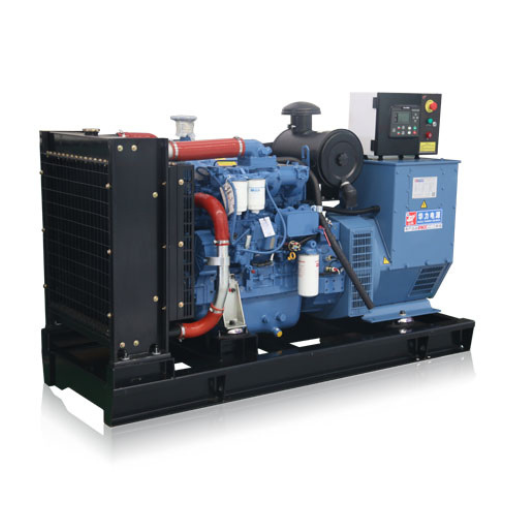
These diesel generators are known as industrial-type appliances, delivering fast power and reliability, able to sustain heavy loads. Through a diesel-burning process, generally, much more heat is given out, and under full demand, they are more fuel-efficient compared to other types of generators. However, in comparison with natural gas generators, they provide significant emissions.
From another perspective, natural gas generators are better alternatives, emitting less carbon dioxide, thus providing relatively less environmental impact. This makes it very cost-effective in the long run in those areas that have a pre-existing natural gas infrastructure setup, yet power output might be slightly below that of diesel counterparts.
The final choice boils down to characteristics like power requirement, environmental aspect, fuel availability, and operating cost related to the particular application.
Advantages and Disadvantages of Diesel Generators
Advantages of Diesel Generators
- High efficiency and reliability for continuous power supply.
- Longer lifespan with proper maintenance.
- Lower fuel consumption compared to some other generator types.
- Can handle heavy loads over extended periods.
- Widely available fuel and spare parts for maintenance.
Disadvantages of Diesel Generators
- Higher upfront costs compared to some alternatives.
- Increased noise levels during operation.
- Emits more pollutants, contributing to environmental challenges.
- Requires regular maintenance, including oil and filter changes.
- Bulkier and heavier, making them less portable.
Advantages and Disadvantages of Natural Gas Generators
Advantages of Natural Gas Generators
- Cleaner-burning fuel, resulting in lower emissions compared to diesel generators.
- Typically quieter in operation, reducing noise pollution.
- Fuel supply can be connected directly to natural gas pipelines, eliminating the need for storage.
- Requires less frequent maintenance compared to diesel alternatives.
- More environmentally friendly option for long-term use.
Disadvantages of Natural Gas Generators
- Reliant on access to natural gas infrastructure, which may not be available in all locations.
- Less efficient fuel energy output compared to diesel generators.
- Can have higher operating costs in areas with expensive natural gas rates.
- Susceptible to supply interruptions in case of natural disasters affecting gas pipelines.
- Initial installation costs may be higher due to infrastructure requirements.
Emerging Trends in Generator Technology
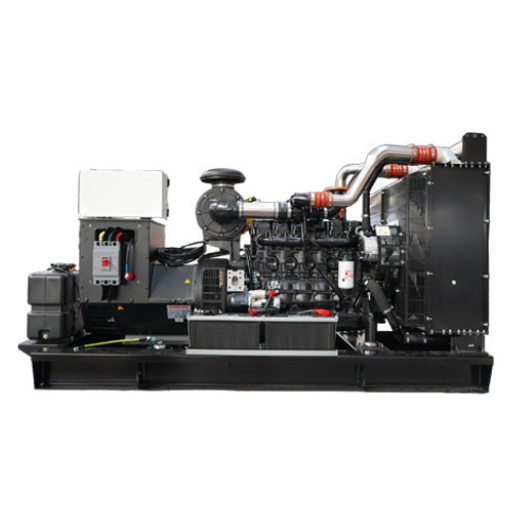
- Hybrid Generators
Combining traditional fuel generators with renewable energy systems such as solar panels and batteries is called a hybrid system. This would improve fuel efficiency and lower the output of emissions to be environmentally friendly.
- Smart Generators
The Internet of Things technology enables modern generators to be viewed and controlled remotely from a distance. Through a mobile app or web platform, users may monitor generator performance, schedule maintenance, and manage energy consumption.
- Fuel Cell Generators
Fuel cells are attracting great attention because these systems generate energy cleanly and efficiently, with almost negligible environmental impact. Hydrogen fuel cells in particular, are being considered as alternatives to conventional fuels.
- Energy Storage Integration
The latest energy storage using lithium-ion batteries allows generators to store excess energy. This is especially useful in peak-demand management and lessening the constant fuel consumption burden.
- Low-Emission Designs
Forged under demand for stricter environmental control into a design that ensures low particulate and greenhouse gas emissions, this good generator now helps resolve the generator’s heavy-earth footprint concern.
The above points describe the new fostering cry for cleaner, smarter, and much more adaptable generator technologies capable of meeting the newer demands of energy production.
Hybrid power generation systems for industrial generators
Hybrid power generation systems combine two or more energy sources: generators powered by diesel or gas can be combined with some form of renewable energy, be it solar or wind, to produce a sustainable and efficient energy supply. Hybrid systems try to compensate for the merits and demerits of each energy source to give a steady and uninterrupted power output.
The fuel consumption goes down in this kind of system, so does the operating cost. Solar energy, when used, may provide the advantage of running the diesel in its generator at lesser capacities during the sunniest hours of the day, which might translate into around 50% fuel savings in certain operational arrangements. An improved battery storage system has been recently introduced into the system for storing energy efficiently, so that battery charge and discharge may also use off-peak electricity.
Hybrid systems put a heavy toll on the environment as well. Hybrid power systems, which use generators and renewable sources together, can reduce emissions of carbon dioxide significantly. Some recent case studies reveal reductions of up to 30%-40% in greenhouse gas emissions with hybrid solutions in industrial applications.
Additionally, they are scalable and flexible enough to be used in a lot of industries: mining, construction sites, remote off-grid operations, etc. With real-time monitoring and smart control features, hybrid energy systems optimize energy management and make adjustments to energy demands instantaneously.
System installations on hybrid power generation are increasing due to advancements in energy storage, renewable integration, and regulatory incentives towards reducing the carbon footprint. This transition is not only making energy efficient but also putting industries on the path of sustainability.
Advances in renewable energy integration for industrial generators
Integrating renewable energy with industrial generators has seen marked progress in recent years, thanks to technological advancements and the worldwide thrust for decarbonization. One such important development is the escalation in the use of solar photovoltaic systems and wind turbines to augment traditional fuel-based generators. For instance, hybrid systems with renewable sources and diesel generators can cut down fuel consumption by around 50%, thereby also lowering operational costs and greenhouse gas emissions.
Energy storage technologies like lithium-ion battery and advanced flow battery certainly supplement the cause. Industrial generators are able by these systems to store excess renewable energy and discharge it whenever needed, guaranteeing stability and reliability during less solar or wind activity. Some estimates have pointed out that the growth in the energy storage capacity will become very significant, with some reports projecting a CAGR of over 20% in the next five years.
Apart from this, advanced control schemes, together with smart monitoring techniques, allow minute synchronization of renewable generation with industrial demand. Real-time data analysis alongside AI-driven ad hoc adjustments are increasingly helping industries maximize renewable energy availability without compromising steady power output.
That gets talked about again in terms of the efficiency of energy use while moving to the world targets on sustainable development. Various countries are putting in place incentives and tougher regulations that urge such a transition, eventually paving the way for the speedy adoption of industrial generators integrated with renewables. These systems stand to be the crucial mile towards a cleaner, sustainable industrial energy framework.
Future of Industrial Generators
Several trends and advances are shaping the future of industrial generation. A significant area of development is the integration of various advanced and digital technologies such as IoT and AI-based analytics. Such technologies allow them to carry out predictive maintenance, real-time monitoring, and performance optimization- hence they reduce the downtime and increase the efficiency. Recent industry trends reveal that the global market for smart generators is poised for tremendous growth, with an expected CAGR exceeding 7% between 2023 and 2030.
The rise of hybrid and renewable energy-powered generators is another trend. These systems combine their traditional fuel source with solar or wind energy to lay to rest emission and fuel concerns, but still maintain reliable power output. For example, hybrid generators can reduce fuel consumption up to 40 percent as compared to conventional generators, along with considerably reducing operational costs.
Modular generator design continues to be of much importance, where flexibility and scaling provide the solution to a variety of industrial applications. With a modular system, businesses can modify power generation configurations based on demand, cost-effectively and efficiently.
Also, governments and other organizations are again increasingly pushing for stricter emission regulations and kind rewards for sustainable power solutions. The Paris Agreement and other climate-centric initiatives limit almost all industries to clean alternatives, thus speeding the age of clean generator technology even further.
Thus, innovation, regulatory support, and environmental responsibility combined present great opportunities for industrial power generation. This leads to a more sustainable and reliable energy future.
Reference Sources
-
Breakthrough Made in Energy Efficiency, Use of Waste Heat
This article from Oregon State University discusses advancements in energy efficiency, including innovative technologies for industrial applications.
Read more here -
Efficient Operation of Diesel Generator Sets in Remote Locations
A thesis from Virginia Tech that explores the efficiency of diesel generators and their optimal operating conditions.
Read more here -
A Life Cycle Assessment of a Diesel Generator
This study from Montana Tech evaluates the energy demand and efficiency of diesel generators over their lifecycle.
Read more here -
What is the Efficiency of Different Types of Power Plants?
Published by the U.S. Energy Information Administration, this resource provides insights into the efficiency of various power generation systems, including generators.
Read more here -
A Comparison of Fuel Choice for Backup Generators
A report by the National Renewable Energy Laboratory comparing the efficiency and cost-effectiveness of different generator fuel types.
Read more here
Frequently Asked Questions (FAQs)
What are the different types of generators available for industrial use?
Industrial generators can be categorized into several types, including diesel generators, natural gas generators, and dual-fuel generators. Diesel generators are known for their high energy density and efficiency, making them a popular choice for heavy-duty applications. Natural gas generators, on the other hand, are often favored for their cleaner emissions and lower operational costs. Portable generators are also available but are usually used for smaller applications. Choosing the right generator depends on your specific energy needs and environmental considerations.
How do I choose the right diesel or natural gas generator for my business?
Choosing the right generator involves evaluating your business’s power requirements, budget, and fuel preferences. Diesel generators tend to provide higher thermal efficiency and energy density compared to natural gas generators, but the latter may offer lower emissions and operational costs. It’s essential to consider factors like the generator’s load capacity, fuel availability, and whether you need a standby generator for emergencies. Additionally, assess the pros and cons of diesel versus natural gas to make an informed decision that suits your operational needs.
What are the pros and cons of diesel generators compared to natural gas generators?
Diesel generators are known for their efficiency and durability, often providing more power per unit of fuel consumed. They are ideal for industrial applications where heavy loads are the norm. However, they tend to have higher emissions and noise levels, which can be a downside in urban settings. Natural gas generators are generally cleaner, producing fewer emissions and offering lower fuel costs, but they may not perform as efficiently under heavy loads. Evaluating the pros and cons of diesel and natural gas generators is crucial for selecting the best generator for your needs.
How does fuel efficiency impact the choice of an industrial generator?
Fuel efficiency plays a significant role in the overall operational costs of an industrial generator. Efficient generators use less fuel to produce the same amount of power, which can lead to significant savings over time. Diesel generators, for example, are often more fuel-efficient than natural gas generators, particularly in high-demand situations. However, it’s essential to balance fuel efficiency with other factors like emission levels and maintenance costs when determining the best generator option for your business.
What should I consider when running a generator continuously?
When running a generator continuously, it’s important to consider fuel supply, maintenance, and cooling requirements. Diesel generators typically require fewer refueling stops due to their higher fuel density, making them ideal for long-term use. Additionally, regular maintenance is essential to ensure optimal performance and avoid unexpected downtimes. Be mindful of the generator’s load capacity to prevent overloading, which can lead to premature wear and failure. Understanding how a generator runs continuously will help you maintain efficiency and reliability.
Are there silent generator options available for industrial use?
Yes, there are silent generators designed specifically for industrial use. These generators operate more quietly than standard models, making them suitable for locations where noise pollution is a concern. Silent generators typically utilize advanced soundproofing technologies and are available in various fuel types, including diesel and natural gas. When choosing a silent generator, consider its power output, efficiency, and maintenance requirements to ensure it meets your operational needs without compromising on performance.
